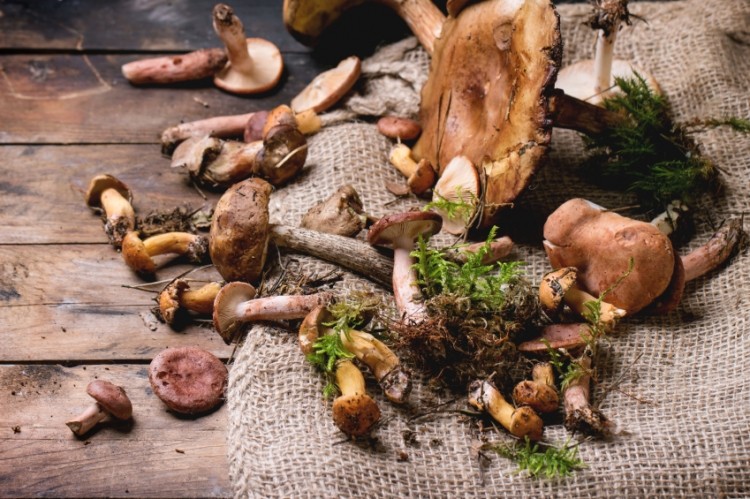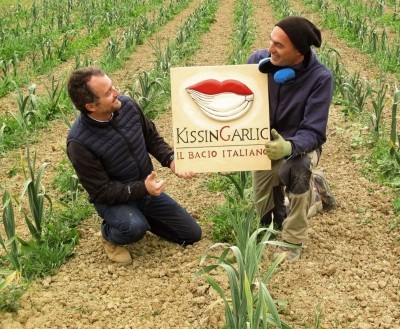Can sustainable foraging go mainstream?

Gracing the menus of many top restaurants, the four Fs of foraging - flowers, fungi, fruit and foliage - are becoming increasingly known, not just to foodies but to food companies.
Mintel analyst David Turner told FoodNavigator that wild ingredients have a growing importance in food trends and can take a company beyond organic and give it 'a sense of heritage'.
Wild ingredients – while still niche – could be easily used to create seasonal limited editions, such as Gordon’s sloe gin, as usually only a little of the ingredient is required to give flavour.
Self-proclaimed ‘wild food experimentalist’, Fergus Drennan, who runs foraging courses in the UK told FoodNavigator: “Working with wild food is a wonderful way to creatively embrace unique flavours, colours, and textures, as well as cooking and preservation techniques, and harvesters supply from clean, unpolluted areas.”
And although, for Turner, scaling up foraging to a commercial scale is almost an oxymoron in terms as by its nature it is ‘self-done’, foraging on a commercial scale is becoming increasingly common.
Drennan used to supply Jamie Oliver’s restaurants with wild ingredients, while Forager.org.uk is one UK-based company which sells wild ingredients online.
Picked by its in-house team as well as a network of freelance foragers who send in supplies, the best-selling items from its online shop are sea vegetables, wild garlic, and elderflower.
A grey area of sustainability?
But Turner warned of over-zealous corporate foragers who have depleted stocks of wild mushrooms in the past.
This is something that Irving vehemently rejects, saying that Forager operates in a sustainable way.
“No one in this business in the UK would work like that if such a scenario were possible. As it is we are basically specialised grazers, like [when] mowing the lawn the plants simply regenerate once cut.
“Most of what we harvest is stem and leaf material. The plants are both abundant and robust. We are dealing in the fat of the land, not scarce and vulnerable species,” he told FoodNavigator.
Another issue is supply. While foraging for wild ingredients allows companies, suppliers and individuals to eat without the massive habitat loss associated with conventional farming, there’s also the undeniable fact that it is never going to feed a burgeoning world population. So can it still be considered sustainable in this sense?
Drennan believes that this is missing the point. It’s not about trying to feed everyone, rather complementing the conventional farming systems –“huge resource-hungry industrial and unsustainable” - that we already have in place.
“In a very small way, I see myself as helping to keep traditions of wild food use alive and relevant to our unique historical situation – at least in the more developed world,” he said.
This is something reiterated by Irving: “We think humans can do better and that food systems are the biggest factor in the change that needs to happen. So we are happy to be part of that change, both through what we do … and the [communication] platform it gives us.”
So could foraging influence big food companies with a more eco-friendly ethos? Drennan doesn’t think so.
“Anything mass produced for commercial purposes is embedded in a whole unsustainable infrastructure of supply and distribution.
“On the other hand if companies put some of their profits into green initiatives, that is still valuable and to be welcomed, even if, perhaps the primary motivation is for good PR.”
A grey area
Foraging occupies somewhat of a grey area in the UK, and a National Trust site which attempts to clarify the situation, seems to merely highlight the many overlapping circles of authority.
Under the Theft Act of 1968, if someone picks a plant from land that belongs to someone else, it is not an act of theft. But if that person decides to sell the plant, an act of theft has taken place.
With many top restaurants getting supplies of wild ingredients from foragers, a blind eye is often in turned.
In 2006 a judge threw out a case brought by the Forestry Commission against forager Mrs Tee-Hillman, and DEFRA even granted her with a unique licence to pick wild fungi for life in the New Forest.
But in 2010 the City of London Corporation confiscated mushrooms foraged from Epping Forest and prosecuted one of the pickers.






















